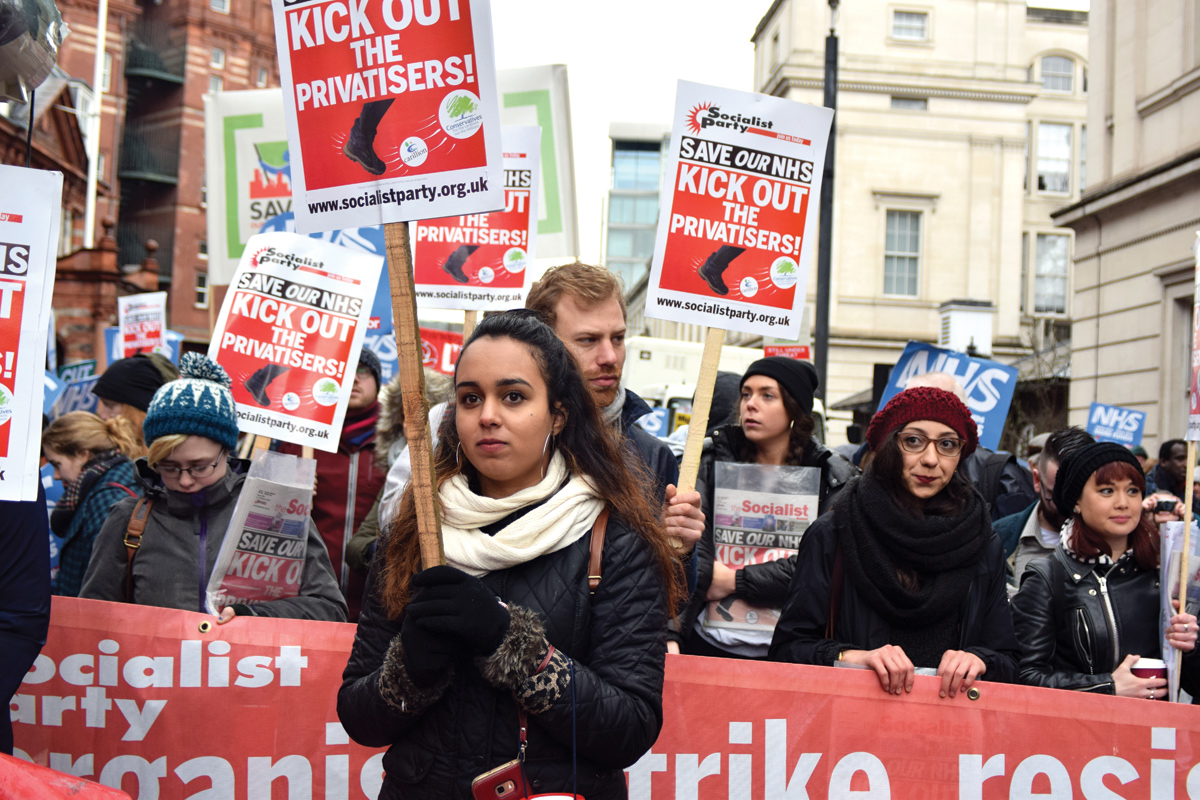Leeds NHS delays staff privatisation plan – but keep on fighting
Iain Dalton, Leeds Socialist Party
Leeds Teaching Hospitals NHS Trust decided on 29 March to delay becoming the fifth in Yorkshire to move support staff to a trust-owned private company.
It is as a result of the growing opposition to these companies being established across the country that Leeds, the biggest trust in Yorkshire, has delayed its proposals and attempted to offer some sweeteners to existing staff.
NHS trusts in Barnsley, Airedale, Harrogate and recently York have all established ‘special purpose vehicles‘ or ‘wholly owned subsidiaries‘, effectively private companies owned by the trust.
They plan to transfer staff including estates, facilities, domestic, cleaning, portering and others into them.
While ‘Tupe’ legislation would protect staff conditions initially, moving out of direct employment leaves staff more open to future attacks. The trust has offered some additional guarantees on this front.
But these only extend to current staff. The new company, like in Keighley, would undoubtedly seek to ‘save’ money by employing new starters on worse pay, conditions and pensions.
Moreover, the proposals include plans to seek outside work to generate income for the trust. This desperate move is the result of year-on-year ‘efficiency savings’ – cuts to you and me – which even the local chief executive has stated are “not sustainable.”
These proposals will further break up the NHS. Trust bosses have been at pains to say this measure “is not about privatisation” dubbing it “an alternative to traditional outsourcing”!
But establishing a private company separate to the NHS is precisely a step towards privatisation, regardless of the fact that the trust board will control it initially.
TUSC challenge
Labour MPs in Leeds have written to the trust – although only Richard Burgon, Corbynista MP for East Leeds, submitted questions to the board. But Leeds Labour councillors seem to have raised no challenge so far.
However, through the council’s health scrutiny committee, they could play an important role in challenging the plans.
Candidates for the Trade Unionist and Socialist Coalition (TUSC) – the anti-austerity electoral alliance including transport union RMT and the Socialist Party – pledge to use these powers if elected.
Socialist Party members in Leeds collected several hundred signatures opposing the proposal. I handed these in as TUSC candidate for the ward containing St James’s Hospital.
In the course of our campaign in the local elections we plan on collecting hundreds more.
Both Unison and Unite union reps at the board meeting, as well as local campaign group Keep Our NHS Public, challenged the proposals.
There are plans to ballot staff in both unions for industrial action if a private company is established.
The decision to defer buys time to build opposition. But staff must remain fully prepared to escalate the campaign if these proposals are to be defeated.









